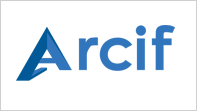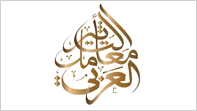Time Management As A Determinant Of Academic Ambition Among A Sample Of Student At The Faculty Of Arts In Sebha Univerity
DOI:
https://doi.org/10.51984/johs.v21i1.1561Keywords:
time management, determinant of academic, studentsAbstract
The current study aims to identify the level of time management as a determinant of academic ambition among a sample of students of the Faculty of Arts at Sebha University. And the study relied on the descriptive analytical method. The sample’s society consisted of (190) male and female students that were chosen randomly. Consequently, after verifying the validity and reliability of the study tools, the study questions were answered. The results concluded that there is a statistically significant relationship between time management and the level of academic ambition among the study sample, there are no statistically significant differences at the level of ambition due to the gender variable, there are no statistically significant differences at the level of ambition due to the age variable, meaning that it is not statistically significant, while there are differences in the two dimensions (personal obstacles, the general dimension),There are no statistically significant differences in the two axes (planning, organization) attributable to the gender variable, i.e., it can be said that there are no statistically significant differences, while there are statistically significant differences in the two axes (time wasting and the general dimension), meaning that they are statistically significant, and there are no significant differences A statistic in the scale of time management attributed to the variable of age, and the study recommends the need to pay attention to the role of time and how to use it to create academic and scientific opportunities for university youth.
Downloads
Downloads
Published
Issue
Section
License
Journal of Humanities Policy on Intellectual Property and Plagiarism
1. Commitment to Intellectual Property and Ethics
The Journal of Humanities (JOHS) is fully committed to respecting intellectual property rights and aims to protect the originality and authentic work of authors who submit their manuscripts for publication. The journal takes a firm stand against articles that contain any form of plagiarism and emphasizes the need for all researchers to adhere to the highest ethical standards in scientific research.
2. Anti-Plagiarism Policy
The journal considers plagiarism a serious violation of academic ethics. Therefore, authors must ensure that their work is original and not plagiarized, and that any use of external sources is properly cited and documented according to correct academic standards.
-
Actions Taken: In the event that any plagiarism or academic theft is discovered in a submitted article, the editorial board will contact the author to request a formal explanation within a maximum period of two weeks from the date of notification.
-
Investigation and Decision: After receiving the explanation, the article will be referred to the journal's specialized committees, which will investigate the matter and take the necessary measures, which may include the permanent rejection of the article and the imposition of disciplinary actions.
3. Publication License and Author Rights
The journal adopts the Creative Commons license type Attribution-NonCommercial-NoDerivs 4.0 International (CC BY-NC-ND 4.0), which allows for the following:
-
Attribution: Users are entitled to cite the content published in the journal and use it in their work, provided that the original source and author are clearly credited.
-
Non-Commercial: The published content may not be used for any commercial purpose.
-
NoDerivs: It is not permitted to make any modifications, distortions, or to build derivative works from the published content.
Under this license, authors are required to complete an exclusive license agreement for the journal. Authors retain the rights to their research data and may reuse and share their work for scientific purposes with proper citation.







